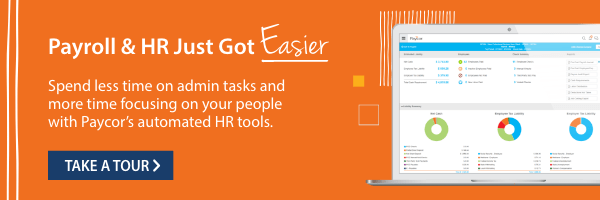In 2023, New York businesses were ordered by the Department of Labor’s (DOL) Wage & Hour Division to pay more than $2M in backpay to more than 1.500 workers they’d misclassified or otherwise paid incorrectly.
In a new year, it’s important for employers in New York to stay updated on the latest workplace compliance regulations. Here are some key compliance watch-outs to be aware of:
Legal Age to Work in New York
In New York, the legal age to work is determined by specific regulations:
When in School
| Age | Max Daily Work Hours | Max Weekly Work Hours | Max Number of Days Worked/Week | Work Times |
| 14–15 | 3 hrs on school days8 hrs on non-school days | 18 hrs | 6 days | 7 a.m. – 7 p.m. |
| 16–17 | 4 hrs on Mo-Th8 hrs on Fr, Sa, Su and holidays | 28 hrs | 6 days | 6 a.m. – 10 p.m. |
When School is Not in Session
| Age | Max Daily Work Hours | Max Weekly Work Hours | Max Number of Days Worked/Week | Work Times |
| 14–15 | 8 hrs | 40 hrs | 6 days | 7 a.m. – 9 p.m. (June 21 to Labor Day) |
| 16–17 | 8 hours | 48 hrs | 6 days | 6 a.m. – Midnight |
When Not Attending School
| Age | Max Daily Work Hours | Max Weekly Work Hours | Max Number of Days Worked/ Week | Work Times |
| 16–17 | 8 hrs | 48 hrs | 6 days | 6 a.m. – Midnight |
New York At-Will Employment
While New York is an at-will employment state, there are important exceptions. Employers and employees cannot terminate the working relationship for illegal reasons. Additionally, if an employment contract (written or implied) or a union agreement exists, the terms of those agreements will dictate the conditions of termination.
Pre-Employment Background Checks
New York State Reporting Limits
Under NY Gen Bus L § 380-J (2019), consumer reporting agencies (CRAs) face limitations:
- Arrests: Reporting arrests without convictions is prohibited unless the case is pending.
- Outdated Records: The following may not be reported if over seven years old:
- Drug or alcohol addiction records
- Satisfied judgments (5+ years old)
- Confinement in psychiatric institutions
- Retail Theft: Reporting these incidents requires an uncoerced confession and signed statement.
New York City’s Fair Chance Act: Updates and Background Checks
In July 2021, New York City expanded its Fair Chance Act protections for individuals with certain criminal records. Key changes for employers include:
- Delayed Background Checks: Criminal background checks must now be delayed until after a conditional job offer is made.
- Two-Part Screening: Employers must separate background checks into two distinct reports:
- Report 1 (Pre-Offer): Focuses on non-criminal information (employment history, education, references).
- Report 2 (Post-Offer): Includes only criminal history. If convictions exist, employers must follow the Fair Chance process before withdrawing an offer.
Furthermore, New York’s Clean Slate Act goes into effect in November 2024. The Act will seal certain criminal convictions, making them inaccessible to employers during background checks. This means employers will have less information to consider when making hiring decisions. However, it’s important to note that the Act does not prevent employers from conducting background checks altogether. It simply limits the information they will receive. Some exceptions to the sealing process include convictions related to sex offenses, violent offenses, or Class A felonies.
Also important to keep in mind: New York’s medical marijuana program protects patients. Employees or job candidates with a valid medical marijuana card are considered disabled under state law, meaning employers can’t take negative actions against them simply because they use medical marijuana.
Pay Equity
While all states fall under the guidelines of the federal Equal Pay Act of 1963, New York has its own provisions (Fla. Stat. Ann. § 448.07) to ensure pay equity:
- Private companies with two or more employees are prohibited from discriminating in the payment of wages based on sex.
- Employers cannot employ a woman at a pay rate less than what a man receives for substantially similar work.
- Employees have the right to sue for damages in case of wage discrimination.
Military Leave Laws
New York provides unpaid leave for state active duty without any loss of benefits. Additionally, companies with 15 or more employees must grant 15 days of unpaid leave for civil air patrol duties.
Holiday Pay
Holiday pay is not mandatory in New York. However, if you choose to offer it to your employees, the rules can vary depending on their employment status (exempt, non-exempt, contractors, construction workers, or freelance workers). Paycor can provide tailored technology solutions, such as Paycor Payroll and Time and Attendance, to help you manage holiday pay effectively.
Paid Family Leave Laws
Currently, only federal law, the Family and Medical Leave Act (FMLA), provides unpaid leave for eligible employees. But as more states introduce their own family leave programs, HR departments will need to ensure compliance with additional regulations. Paycor’s HR and benefits administration platform can assist in managing these requirements.
Maternity Leave Laws
New York currently does not have any state-specific maternity leave laws beyond the federal FMLA, which provides eligible parents with 12 weeks of unpaid leave and job protections.
Staying informed about these workplace compliance updates is crucial for employers in New York to ensure they are meeting legal requirements and providing a fair and compliant work environment for their employees.
How Paycor Helps
Compliance is a moving target. Changes at the federal, state, and local levels can make HR leaders and business owners uneasy. Keeping up with everything can be a full-time job. Paycor helps more than 30,000 customers mitigate risk and stay ahead of regulations. To learn more, download our free HR Playbook: How Paycor Helps You Manage Compliance Risk, or take a compliance product tour.










